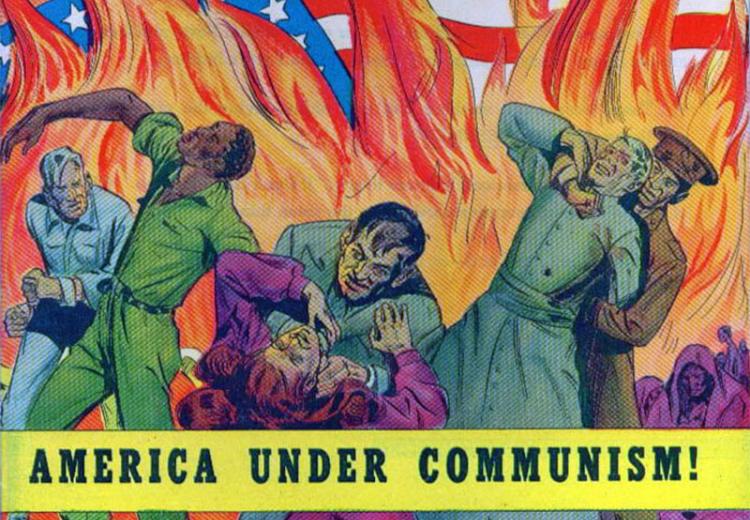Anticommunism in Postwar America, 1945–1954: Witch Hunt or Red Menace?

Cover to the propaganda comic book "Is This Tomorrow" - 1947.
In the aftermath of World War II relations between the United States and the Soviet Union went from alliance to Cold War. In this curriculum unit students will study this turbulent period of American history, examining the various events and ideas that defined it, and considering how much of the anticommunist sentiment of the era was justified, and how much was an overreaction.
Guiding Questions
Why was Soviet espionage such an important issue in the late 1940s and early 1950s?
What constitutes an "un-American" activity?
How did the House Un-American Activities Committee go about defining and investigating individuals and organizations?
What impact did Joseph McCarthy have on American anticommunism?
Learning Objectives
Identify the primary subjects of FBI investigation on espionage charges.
Explain the Venona project, including how it worked and what purpose it served.
Articulate the reasons why the Rosenbergs were convicted of espionage.
Examine the goals and methods of the HUAC.
Explain why HUAC targeted Hollywood, and offer an opinion regarding whether this investigation was justifiable.
Articulate the issues involved in the Alger Hiss case.
Evaluate whether HUAC lived up to its stated purposes.
Enumerate the charges that McCarthy made against the Truman administration, and explain why they had such an impact.
Articulate the views of McCarthy's critics, namely Truman and Margaret Chase Smith, and assess their validity.
Explain Eisenhower's attitude toward McCarthy, and give an informed opinion as to whether Eisenhower should have done more to stop him.
Articulate the reasons for McCarthy's downfall in 1954.
